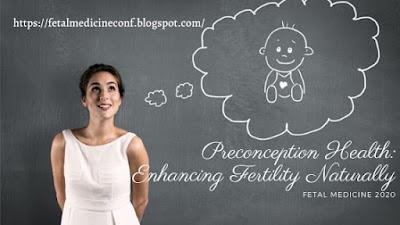Preconception Health_ For a Healthy Family !
Preconception
Health:
Preconception
health refers to the health before pregnancy. Maternal lifestyle in the period
prior to conception, as well as during pregnancy, is an important determinant
of healthy pregnancy and normal fetal development. By the time most women have
realised that they are pregnant and have taken the first contact with antenatal
care, the fetal organs have already been developed. Interventions aiming to
prevent adverse pregnancy outcomes related to organogenesis are thus often too
late. Risk factors include insufficient nutrition, low levels of folate,
overweight/obesity, medical conditions and its treatments, alcohol and tobacco
use, and high age.
Maternal
nutrition both preconception and during pregnancy can affect growth,
development and later health outcomes of the fetus. To reduce the risk of
neural tube defects (NTDs) in the fetus, women are advised an intake of 400 μg
folic acid daily in good time before conception and up to 12 weeks after. As an
increasing proportion of women of reproductive age use medications, and few
medications are examined for possible teratogenic effects, women should discuss
all usage of medications with their health care provider (HCP) if planning a
pregnancy or becoming pregnant. Obesity (Body Mass Index, BMI, of 30 or above)
is associated with increased risks both for infertility and complications
during pregnancy, such as preeclampsia and gestational diabetes, as well as complications
during delivery. Alcohol use in early pregnancy has been associated with
increased risk for spontaneous abortion, preterm delivery and low birth weight.
The association is
evident even with low amounts of alcohol consumption, but binge drinking seems
to be the most hazardous to fetal development
Smoking
during pregnancy is a well-documented risk factor for adverse pregnancy and
neonatal outcomes, and also snuff use increases the risk of stillbirth.
Stopping or reducing tobacco intake during pregnancy strongly reduces the risks.
One out of ten women aged 16- 29 smokes daily. Approximately 3% of women aged
16-84 use snuff, but snuff use is becoming more common and the increase is greatest
among younger people, the proportion of women who smoked in early pregnancy was
6% and 1% used snuff. Except from lifestyle factors, female fertility can be
impaired by a range of factors such as premature menopause, salpingitis,
endometriosis, polycystic ovary syndrome and sexually transmitted infections
(STI), but most importantly by physiological ageing.
The impact of age on fertility and
pregnancy:
Approximately
10-15% of the population is estimated to have difficulty conceiving naturally
and about half of these seek medical help for infertility. The possibility to
use fertility and reproduce, the fecundity, is at its highest at the age of
20-24. Among heterosexual couples with women younger than 30 years, 90% become
pregnant after one year of unprotected intercourses while the corresponding
figure for women aged 35-40 is 50%. The chance of a live birth after a cycle of
in vitro fertilisation (IVF) also decreases with age. For a couple to have a
90% chance of realizing a desired 2-child family without IVF, it is estimated
that they should not postpone parenthood later than 27 years of age. The
corresponding age if IVF can be considered is 31. Apart from decreased
fecundity, older age at conception increases the risk for complications both
for the mother and for the child. Risks for the mother include gestational
diabetes, preeclampsia, multiple pregnancy, caesarean section and postpartum
bleeding. Children born to older mothers have an increased risk of chromosomal
deviations, being born prematurely or small for their gestational age. In
addition, pregnancies among older women more often end in spontaneous abortion,
extra uterine pregnancy and stillbirth
Family planning and postponed
parenthood:
On
a population level, fertility postponement should be understood as a result of
a large number of factors with mutual interplay. From a life course perspective
the transition into adulthood has become blurred and prolonged, and sequencing
norms are today stronger than age norms for childbearing, that is, fulfilling
all preconditions before childbearing is more important than not being too
young/old. Indeed, six out of ten women answered they would choose to have an
abortion if they became pregnant while they were a student.




Comments
Post a Comment